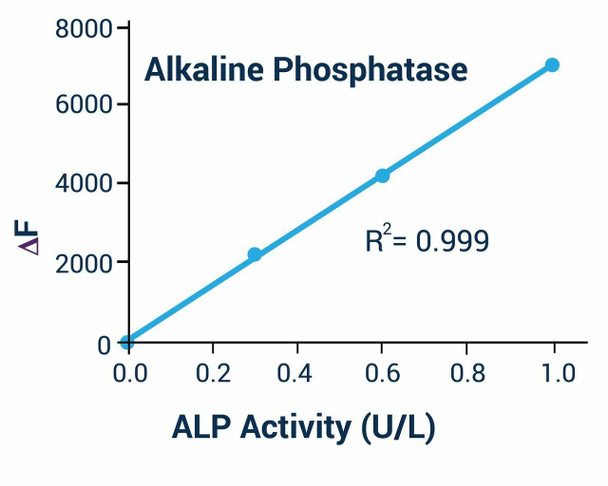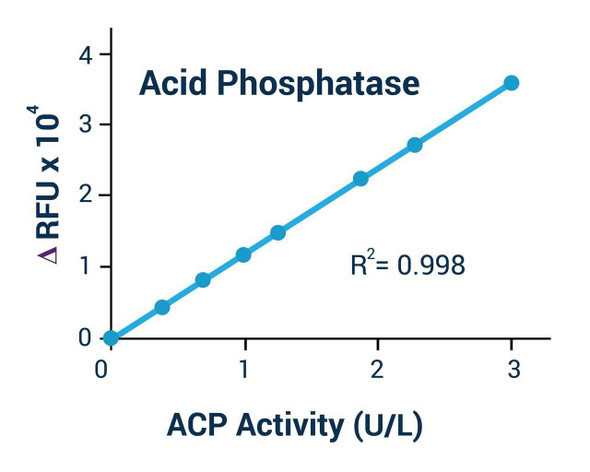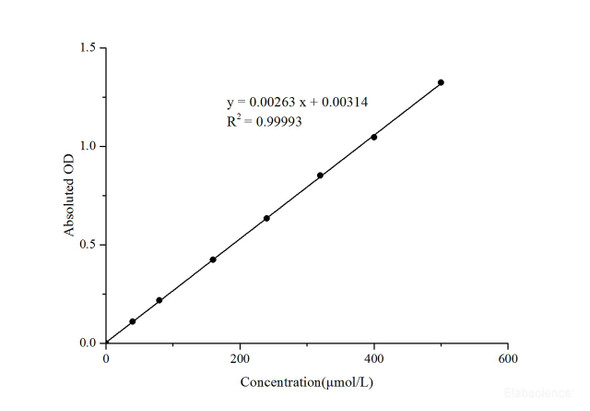

Alkaline Phosphatase Assay Kit - Information
Alkaline phosphatase (ALP) catalyzes the hydrolysis of phosphate esters in an alkaline environment, resulting in the formation of an organic radical and inorganic phosphate. In mammals, this enzyme is found mainly in the liver and bones. Marked increase in serum ALP levels, a disease known as hyperalkalinephosphatasemia, has been associated with malignant biliary obstruction, primary biliary cirrhosis, primary sclerosing cholangitis, hepatic lymphoma and sarcoidosis. Simple, direct and automation-ready procedures for measuring ALP activity in serum are becoming popular in Research and Drug Discovery. This improved method utilizes 4-methylumbelliferyl phosphate that is hydrolyzed by ALP into a highly fluorescent product 4-methylumbelliferone. The rate of the fluorescence increase is directly proportional to the enzyme activity
Applications
For quantitative determination of alkaline phosphatase (ALP) activity using stable 4-methylumbelliferyl phosphate substrate.
Alkaline Phosphatase Assay Kit - Key Features
- High sensitivity and wide linear range. Use 10 uL sample. Detection limit of 0.02 U/L (20 min reaction).
- Homogeneous and simple procedure. Simple "mix-and-measure" procedure allows reliable quantitation of ALP activity within 20 minutes.
- Robust and amenable to HTS. All reagents are compatible with high-throughput liquid handling instruments.
Alkaline Phosphatase Assay Kit Information:
| Kit Includes: | Reagent: 14 mL (pH 10.5) 100x Standard: 120 mL |
| Kit Requires: | Pipeting devices and accessories (e.g. multi-channel pipettor). Black flat-bottom 96-well plates and plate reader. |
| Method of Detection: | FL360/450nm |
| Detection Limit: | 0.02 U/L |
| Samples: | Serum, plasma etc |
| Species: | All |
| Protocol Length: | 20 min |
| Size: | 100 tests |
| Shelf Life: | 2 years |
| Storage: | Store at -20°C |








